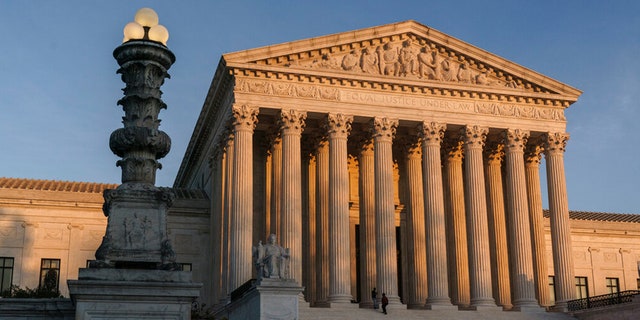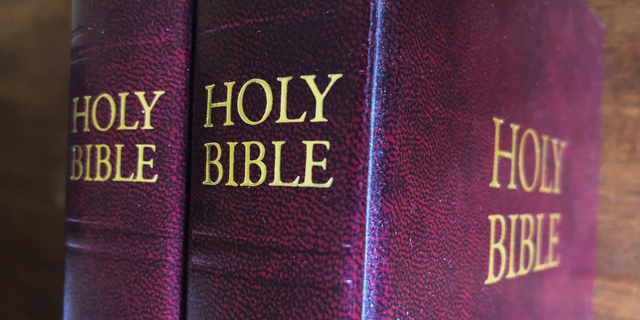Religious liberty group defends Bible after Utah parent calls it ‘porn,’ demands removal from school
A nonprofit religious liberty law firm fired off a letter to the Sensitive Materials Review Committee of a school district in Utah arguing that keeping the Bible in its libraries is both reasonable and legal after a parent complained that the book is pornographic.
Attorneys with the First Liberty Institute informed the Davis School District in Farmington that the Bible “has serious value for minors” and warned that “removal of the Bible would constitute hostility toward Christianity” that would raise constitutional concerns, according the advisory letter they sent Monday.
The letter comes after a parent in the district reacted to the state’s ban on sexually explicit books in school libraries by calling for the Bible to be removed from a public school for its alleged pornographic content.
“Get this PORN out of our schools,” the parent wrote in a December complaint that was first reported last month by the Salt Lake Tribune. “If the books that have been banned so far are any indication for way lesser offenses, this should be a slam dunk.”
UTAH PARENTS CALLS BIBLE ‘PORN’ IN REACTION TO SCHOOL’S BAN ON SEXUALLY EXPLICIT BOOKS
The parent claimed the Bible is “one of the most sex-ridden books around,” and requested its removal from Davis High School in Kaysville after alleging that its content violates Utah state code following the passage of HB374 last May, which prohibited children’s access to obscene books in schools.
The parent also submitted an eight-page list of more than 130 allegedly offensive biblical passages.
Davis School District spokesperson Christopher Williams said at the time that the complaint about the Bible is one of 81 requests the district has fielded since the new law was passed, according to The Christian Post.
Noting how the Utah state code permits parents to petition for removal of materials from schools that are “harmful to minors,” “pornographic,” or have “no serious value to minors,” the First Liberty attorneys asserted that “the Bible is none of these things,” and that students risk “an incomplete education” if the book is removed from schools.

“In fact, according to the Supreme Court of the United States: ‘[i]t certainly may be said that the Bible is worthy of study for its literary and historic qualities,’” the lawyers said, referencing the 1963 Supreme Court case Abington School District v. Schempp. The landmark ruling found that mandatory religious activities in public schools were unconstitutional, but the court also argued “that such study of the Bible or of religion, when presented objectively as part of a secular program of education” did not violate the First Amendment.
PARENTS PULL 4-YEAR-OLD FROM CHURCH SCHOOL FOR PROMOTING ‘GENDER IDENTITY’ LESSONS: ‘CRUEL DECEPTION’
First Liberty noted that 98% of high school-level English teachers agreed that students who are unversed in the Bible are at a disadvantage when reading and studying English literature, according to a survey by the Bible Literacy Project. The survey also found that 38 out of 39 English professors at leading universities in the U.S. believe that someone must have biblical knowledge to be fully educated.

First Liberty further argued that removing the Bible while allowing other religious holy books to remain would be “unconstitutional hostility toward Christianity that the Constitution does not tolerate,” especially given that some of the verses the parent took issue with are also found in the Torah and the prophetic books of the Tanakh, or Hebrew Bible.
The letter concluded by urging the school district to “take extreme care in its review of the Bible” and “to follow precedent that deems the Bible to be of high educational value to students and not to act in a manner that is hostile toward Christianity by removing the Bible from District libraries.”
“The serious educational value of the Bible to secondary students is unquestionable,” Keisha Russell, counsel for First Liberty, said in a statement provided to Fox News Digital. “Far from being inappropriate, as many studies have shown, knowledge of the Bible is actually critical to a student’s education. Importantly, it is also illegal for the school district to display hostility toward any particular religion or religious text. The school district must adhere to the law.”
Read the full article Here


